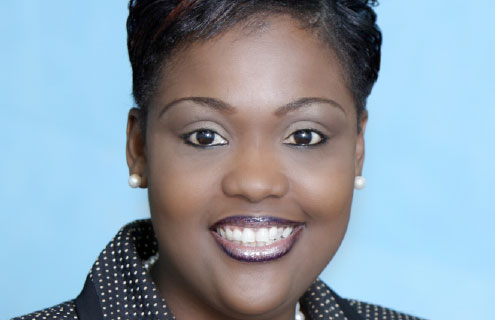Bahamas Financial Services Board
Tanya McCartney, CEO of BFSB, discusses the outlook for The Bahamas’ captive insurance market in 2018
Has 2017 been a successful year for the captive insurance industry in The Bahamas?
On the basis that we have experienced growth and a stable regulatory environment, yes we can say that 2017 was a success. At year-end 2017, the captive industry experienced a year-on-year increase in both licensed and registered captive entities operating from within The Bahamas.
In October, Ray Brown, principal of actuarial consulting firm Nichol & Co, discussed the benefits of potential growth for The Bahamas captive industry. He suggested an increase of 200 to 300 companies, do you think this is a realistic target and what can be done to achieve this?
The Bahamas is an ideal jurisdiction for captives and if we leverage our strengths we can continue to experience growth. While we do not set specific targets there is a sustained commitment by the government and private sector to develop the domicile.
The captive environment in The Bahamas is supported by a highly experienced and diversified asset and wealth management industry.
The jurisdiction has developed a reputation as a leader in these areas, which has enabled it to facilitate synergies with the insurance market.
The legislative framework for captives within the jurisdiction provides robust statutory protection to ensure that the assets and liabilities of each account are truly separate and distinct.
Cell captives benefit from the natural economies of scale created within such structures, and the regulatory regime in The Bahamas is a clear response to the demand for cost effective means of entering into the captive markets.
What is new in terms of regulations? And is there anything on the horizon for 2018?
The reality is that The Bahamas has demonstrated a long-standing commitment to being a responsible member of the international community.
In this regard, the government continues to work assiduously to ensure that every step is taken to emphasise demonstrably this continued commitment.
As such, the country’s counter-money laundering, anti-terrorism and proliferation legislation, and tax cooperation framework must meet international best practices, standards and norms.
There is a requirement for continuous improvement as the goalposts shift. Hence, we expect that there will be enhancements to our anti-money laundering and countering of terrorist financing regime.
The intent is to update the existing regime to take into account broader identified risks.
In December 2017, we joined more than 108 countries in the Organisation for Economic Co-operation and Development’s Global Forum in acceding to the Multilateral Convention on the Mutual Administrative Assistance in Tax Matters (the Multilateral Convention).
Arriving at this point required much collaboration between the government and industry stakeholders in The Bahamas in order to address the risks to tax compliance posed by non-cooperative jurisdictions.
The Bahamas will implement common reporting standards (CRS) using the “wider approach”, which means that financial institutions will need to collect and retain the CRS information for all account holders.
We have also signed the Multilateral Competent Agreement and entered the inclusive framework on base erosion and profit shifting (BEPS) in December 2017.
The Bahamas indication of a definitive position on BEPS in December 2017 demonstrates its proactive engagement with international stakeholders as a means of strengthening the positioning of the jurisdiction.
Under the recently passed Commercial Enterprises Bill, the captive insurance and reinsurance industry were specified as areas where incentives and concessions will be provided to stimulate growth in these areas.
Do you agree with the fears raised by Bahamas Insurance Association chairman Emmanuel Komolafe that The Bahamas may be shooting themselves in the foot by making the decision to include both general and captive insurers as financial institutions under the Financial Transactions Reporting Act?
All jurisdictions must balance business objectives with the need to adhere to international regulatory standards. We have been quite adept at doing this and with the collaboration of the government and private sector we are confident that we will continue to have an environment that is conducive to growth in the captive sector.





